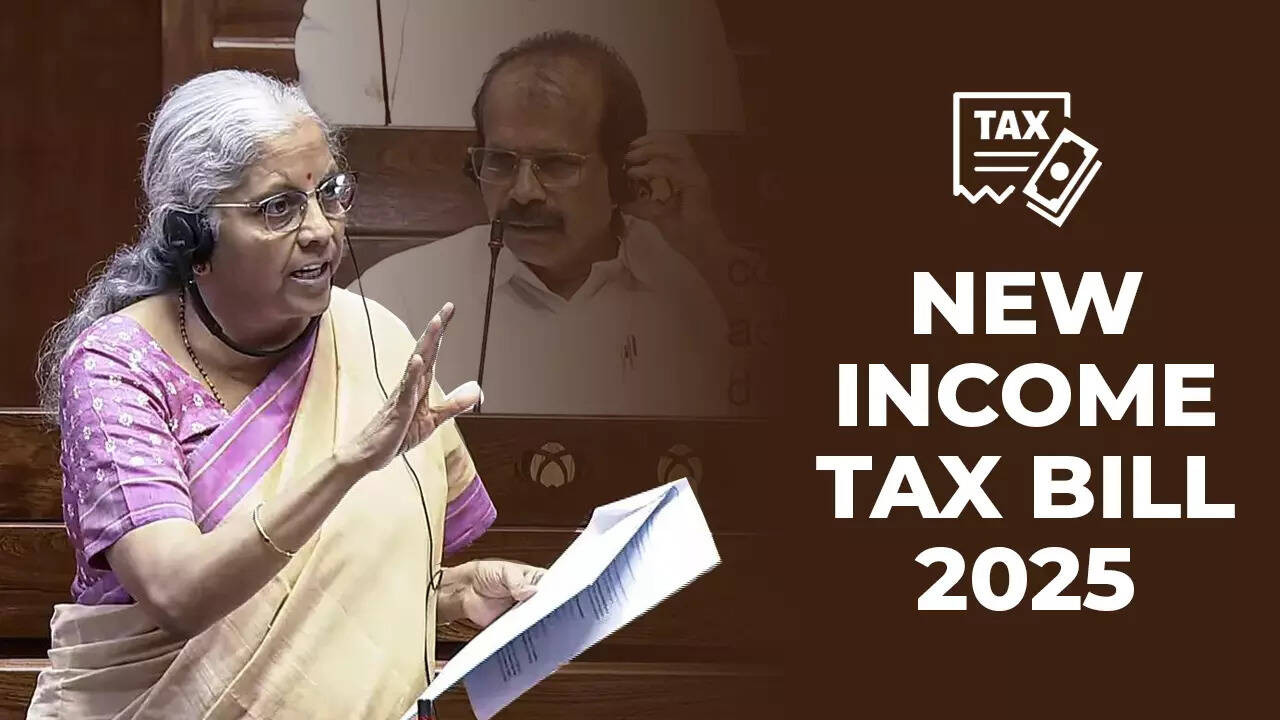New Income Tax Bill 2025: The Lok Sabha has passed the New Income Tax Bill 2025, a major overhaul aimed at simplifying tax procedures for individuals and corporations. The revised bill, incorporating recommendations from a Parliamentary Select Committee, reduces text volume, streamlines the taxation timeline, and clarifies provisions for refunds and deductions.
Saying Goodbye to a Tax Era: The New Income Tax Bill 2025
For decades, the Income Tax Act of 1961 has been the bedrock of India’s tax system. It’s been amended, tweaked, and patched up countless times, becoming a complex and sometimes bewildering beast. But now, a new dawn is breaking on the horizon. The government is poised to introduce the New Income Tax Bill 2025, a complete overhaul intended to modernize and streamline the entire process. Think of it as spring cleaning for the national treasury – a fresh start designed to make life easier for taxpayers and more efficient for the government.
But what exactly does this shift mean for you? Let’s dive into the key aspects of this game-changing legislation and what you need to know to navigate the future of Indian taxation.
Why Replace a Classic? The Need for Modernization
The existing Income Tax Act, despite its long history, has started showing its age. The Indian economy has transformed dramatically since 1961, with the rise of digital transactions, globalized markets, and new forms of income. The old Act, burdened by numerous amendments, struggled to keep pace, leading to complexities, ambiguities, and increased compliance burdens for both taxpayers and the tax authorities. The goal of the New Income Tax Bill 2025 is to create a tax system that is simpler, more transparent, and better aligned with the needs of a 21st-century India.
Key Highlights of the Incoming Tax Revolution
While the full details are still under wraps, several key themes and potential changes are emerging regarding the New Income Tax Bill 2025. Expect to see a strong emphasis on:
* Simplification: One of the core aims is to reduce the complexity of tax laws. This could involve consolidating various provisions, simplifying tax slabs, and making it easier for individuals and businesses to understand their tax obligations. This push towards clarity is a welcome change for anyone who has ever struggled to decipher the intricacies of the current system.
* Reduced Litigation: A simpler system with fewer ambiguities naturally leads to fewer disputes. The Bill is expected to incorporate provisions aimed at minimizing tax-related litigation, potentially through clearer definitions, advance rulings, and more efficient dispute resolution mechanisms.
* Focus on Digitalization: The government is keen to leverage technology to improve tax administration. Expect to see greater emphasis on online filing, digital record-keeping, and the use of data analytics to improve compliance and detect tax evasion. For insights into the current digital landscape of tax filing, explore the digital tax filing process.
* Alignment with International Best Practices: In an increasingly interconnected world, it’s crucial for India’s tax system to be aligned with global standards. The new Bill may incorporate provisions related to international taxation, transfer pricing, and the taxation of multinational corporations to create a level playing field and attract foreign investment.
* Addressing Emerging Economic Realities: The Bill is likely to address the tax implications of new economic models, such as the gig economy, e-commerce, and virtual assets. This proactive approach will ensure that the tax system remains relevant and adaptable in the face of rapid technological advancements.

What Taxpayers Need to Watch Out For
The transition to the New Income Tax Bill 2025 will undoubtedly have implications for taxpayers across all categories. Here are some key areas to keep an eye on:
* Changes to Tax Slabs: The tax slab structure may undergo significant changes. This could affect the amount of tax you pay, so it’s crucial to understand the new slabs and how they apply to your income.
* Exemptions and Deductions: The Bill may revise the existing exemptions and deductions available to taxpayers. Some exemptions may be eliminated, while new ones may be introduced. It’s crucial to re-evaluate your tax planning strategies in light of these changes.
* Compliance Requirements: Pay close attention to any changes in compliance requirements, such as filing deadlines, reporting formats, and documentation requirements. Staying compliant is essential to avoid penalties and maintain a clean tax record.
* Impact on Businesses: Businesses should carefully assess the impact of the new Bill on their tax liabilities, accounting practices, and investment decisions. It’s advisable to seek professional advice to ensure compliance and optimize tax efficiency.
The Road Ahead: A Phased Implementation
The government is likely to adopt a phased approach to implementing the New Income Tax Bill 2025. This will allow taxpayers and tax authorities to gradually adjust to the new system and minimize disruption. There will likely be extensive outreach and education campaigns to raise awareness about the changes and provide guidance on compliance.
The introduction of the New Income Tax Bill 2025 marks a significant turning point in India’s tax history. It represents a bold attempt to create a tax system that is simpler, more efficient, and better suited to the needs of a dynamic and rapidly evolving economy. While the transition may present some challenges, the long-term benefits of a modernized tax system are undeniable. By staying informed and proactively adapting to the changes, taxpayers can navigate the new landscape and contribute to a more prosperous and equitable India.







